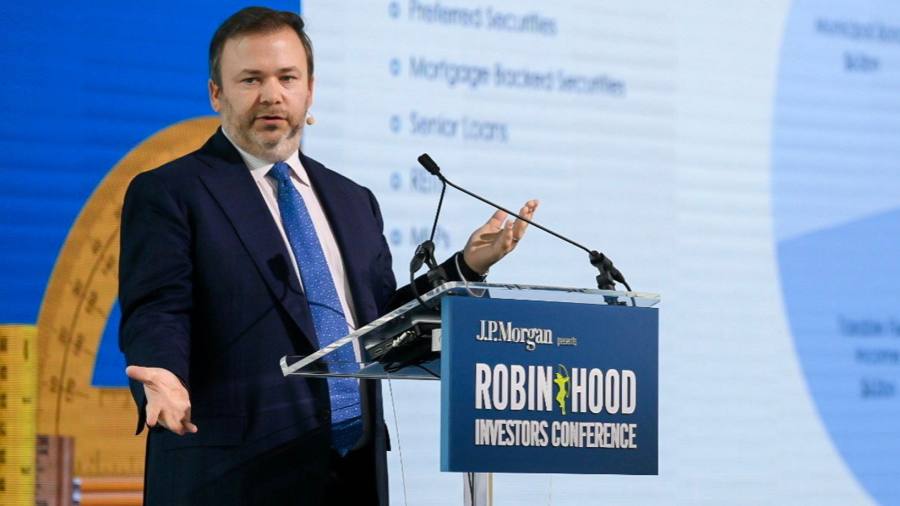
Global stock markets could be heading for a Japan-style bear market lasting decades, says the hedge fund manager credited with spotting the “London Whale” derivatives trader a decade ago.
Boaz Weinstein, whose New York-based Saba Capital was one of the world’s top-performing hedge funds in the market turmoil of 2020, said that the unwinding of central banks’ vast stimulus programmes in an effort to combat high inflation could lead to “doldrum” markets for a prolonged period.
“I’m very pessimistic. There isn’t a rainbow at the end of all this,” Weinstein told the Financial Times. “[Quantitative tightening] is going to be a real headwind for investors.”
“There’s no reason that this difficult [economic] period will only last two to three quarters [and] . . . no reason to think we’ll have a soft landing or a shallow recession,” he added.
Saba’s Master fund, which bets on dislocations in credit and equity markets, had risen 73.2 per cent in 2020 and is up 31 per cent so far this year, according to a person who had seen the numbers.
Meanwhile, tail risk funds betting on equity market volatility are up 13.2 per cent this year, according to the CBOE Eurekahedge Tail Risk Hedge Fund index.
Weinstein, whose firm manages $4.8bn in assets, pointed to the fact that investors have to contend not only with the ending of central banks’ programme of bond buying over the past decade but also its reversal. The policy, known as quantitative tightening, involves selling bonds back into the market.
The US Federal Reserve has so far shown little sign that it will slow the pace of its tightening, which includes winding down the near-$9tn balance sheet it built up over years of loose monetary policy, with core consumer price inflation in the US rising to 6.6 per cent last month.
Developed markets, he said, “could certainly” follow the pattern of the Nikkei 225, which is still around 30 per cent below its all-time high reached in 1989.
“That changed the psychology about whether being a stockholder is such a prized” status, he added.
Weinstein, a former co-head of global credit trading at Deutsche Bank, founded Saba in 2009. He hit the headlines in 2012 when he was credited with having taken the other side of the trade to JPMorgan Chase proprietary trader Bruno Iksil, nicknamed the “London Whale”, whose outsized credit derivatives trades cost the bank $6bn in losses.
Weinstein said he is holding credit default swaps — insurance against default — on cyclical and volatile credits, as he believes that a recession will inevitably lead to corporate defaults and credit spreads widening dramatically.
He also believes they are a better form of insurance than equity market options, which may not rise sharply if equity markets grind lower rather than plummeting.
Weinstein said the apparent lack of panic selling in the current bear market so far was down to the many different issues — including inflation and rising interest rates, energy costs, the war in Ukraine and an economic slowdown in China — that investors are having to grapple with.
“In this sell-off you have so many things that are problematic swirling around, some that are contradictory. There’s a lot of fear, but there’s been a lot of time for people to think about [the issues].
“This year has been like a horror movie but with five monsters — you don’t know what to focus on, so you deleverage.”
Weinstein said he has written credit swaps on companies he believes “never have a problem”, such as Disney, McDonald’s and PepsiCo, and that he argues are priced by investors too close to more financially unstable companies.